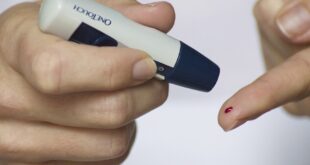Diabetes and Weight Loss: The Do’s and Don’ts
The Importance of Weight Loss in Diabetes
Diabetes is a chronic illness that affects more than 415 million people around the world. One of the major complications of diabetes is weight gain, which can lead to health complications such as high blood pressure, heart disease, and elevated cholesterol levels. Therefore, weight loss is considered an essential component of diabetes management.
The Do’s and Don’ts of Weight Loss for Diabetes
When it comes to weight loss for diabetes, there are things you should and shouldn’t do. Here are some Do’s and Don’ts:
Do: Maintain a Healthy Diet
Unhealthy eating habits are common triggers of weight gain in people with diabetes. Instead, maintain a healthy balanced diet that focuses on nutrient-dense foods like whole grains, veggies, legumes, and lean proteins.
Don’t: Skip Meals
Skipping meals doesn’t benefit your body in any way. It only triggers the reversal of the blood glucose that comes after eating, leading to feelings of hunger and overeating during the subsequent mealtime.
Do: Increase Your Physical Activity
Exercises and physical activity intervals increase your body’s metabolism and decrease the sugar level. It could help you reduce insulin needs and keep calorie intake under control. Therefore, it’s always recommended to strive for 30 minutes of physical activity at least five days a week.
Don’t: Rely on Quick Fix Weight Loss Methods
Losing weight slowly and steadily is the most sustainable means of long-term weight management. Quick fix methods might help you see immediate results but are highly unlikely to provide long-lasting effects. If you’re considering weight loss products, consult with your healthcare provider first.
Do: Monitor Sugar Intake
Keeping track of your sugar intake is essential to regulating your body’s blood sugar levels. Sugars that accumulate in the bloodstream significantly increase the chance of developing other conditions, cardiac diseases, or reducing life expectancy.
Don’t: Ignore Stress Management
Stress hormones impact blood glucose levels, hence, to maintain a balance workout, active stress management techniques like yoga, deep breathing tools, and light therapy could help diabetes patients significantly.
Conclusion
According to estimations by the NHS, losing weight via a healthy lifestyle programme or bariatric surgery approach may put type-2 diabetes back into teens for some UK people with exciting life routines. Overall, regular checks, thoughtful choices, and a general plan scaled with your doctor are essential to pushing off the progression of diabetes mechanisms at the earliest stage.
 Mind Uncharted Explore. Discover. Learn.
Mind Uncharted Explore. Discover. Learn.


